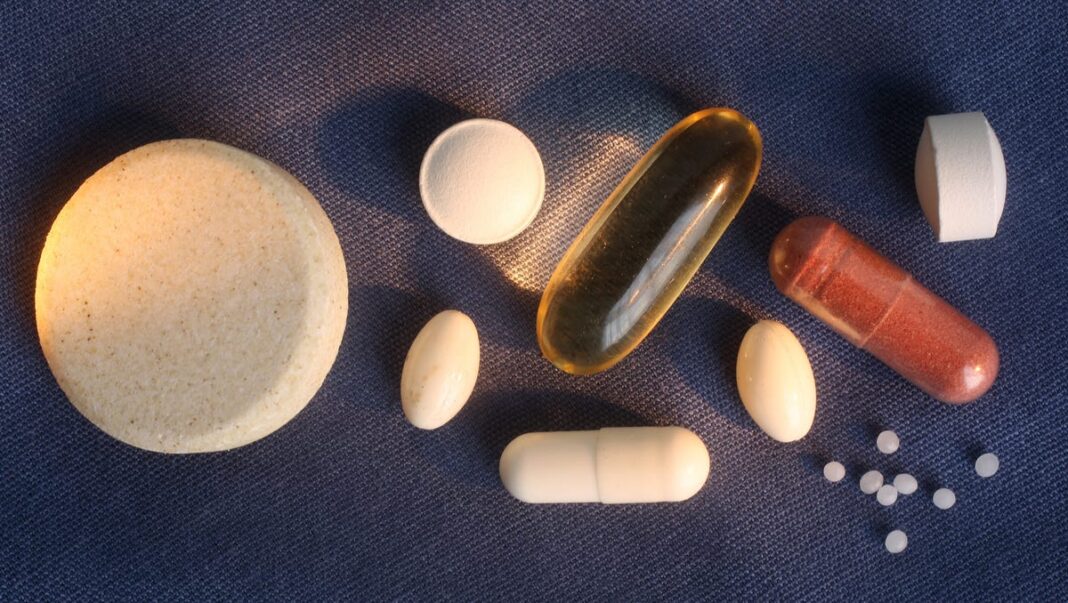Can biotin supplements really enhance hair growth? Experts share their insights.
If you’re looking for ways to strengthen your nails and achieve thicker, fuller hair, you may wonder if biotin supplements can address your beauty concerns.
Biotin deficiency is rare, and most people can meet their biotin (or vitamin B7) needs through a balanced diet, as noted by Healthline.
With many advocates promoting biotin supplements for their supposed benefits for hair and nails, it’s only natural to ask: Are these supplements necessary, and do they provide more advantages for certain individuals?
We consulted experts to clarify what you should know about biotin.
What is biotin’s function?
Biotin assists in various bodily functions, such as metabolizing carbohydrates, fats, and proteins, according to Dr. Misbah K. Keen, MD, MBI, MPH, a professor at the University of Washington School of Medicine.
Additionally, biotin is crucial for maintaining keratin structure—a protein that is vital for healthy hair, skin, and nails, Keen explains to YSL News.
Biotin is particularly important during pregnancy as it supports embryo growth, according to Mount Sinai.
Who may be at risk for biotin deficiency?
Most people can fulfill their biotin requirements by consuming a variety of foods rich in biotin, such as eggs, nuts, seeds, meat, and fish, states Dr. Barbara Bawer, a family medicine physician at The Ohio State University Wexner Medical Center.
Biotin deficiency is quite rare, but it can lead to various symptoms like hair loss, brittle nails, a red scaly rash (often around the eyes, mouth, and nose), a swollen, painful tongue, neurological issues (like numbness and tingling), and mood changes (including depression and lethargy), Keen states.
A tiny fraction of the population may be born without the enzyme biotinidase, affecting how they metabolize biotin, explains Dr. Lidya Bal, MD, a physician at Stamford Health. Estimates suggest that biotinidase deficiency occurs in about one in 40,000 to one in 60,000 individuals, per NCBI.
Pregnant or breastfeeding women may face a higher risk of biotin deficiency because hormones during pregnancy cause faster biotin metabolism, Bawer explains. While breastfeeding, “you may excrete more biotin, which increases the risk of deficiency,” she adds.
Those with chronic alcoholism or individuals using long-term antiseizure medications are also at a higher risk for biotin deficiency, Keen mentions. “These can disrupt biotin absorption or metabolism,” he states.
Who can gain from biotin supplements?
According to Bal, “Biotin supplements are intended to prevent or treat biotin deficiency,” and they may be useful for those who have this deficiency.
Dr. Sarah Hemeida, MD, MPH, an assistant professor and family physician at UT Southwestern Family Medicine, emphasizes that biotin supplements should always be taken under medical advice.
The recommended daily intake (AI) for adults is 30 micrograms and for children, between eight and 12 micrograms, Bal notes. However, doses may vary depending on individual circumstances and the severity of the deficiency. In certain situations, a daily dose could be as high as 10mg, according to Bal.
Biotin supplements can be particularly beneficial during pregnancy and lactation when maintaining healthy biotin levels is crucial, Hemeida says. Since there are risks associated with biotin supplements during pregnancy, consulting a doctor before taking them is essential.
Is biotin effective for hair growth?
Regrettably, for most individuals, using biotin supplements is unlikely to significantly affect hair growth. Keen mentions, “Although biotin is heavily promoted for hair loss, the research supporting its efficacy is inconsistent.”
A 2017 review indicated that while some studies have shown positive effects from biotin supplementation among those with a biotin deficiency (either acquired or inherited), these instances are still quite rare.
The same review concluded that biotin supplementation is unlikely to influence hair growth in healthy individuals who do not suffer from a biotin deficiency.
Can biotin enhance nail strength?
Some small-scale studies suggest that biotin supplements may help improve the strength of brittle nails by making them firmer, thicker, and harder.
However, if you’re not biotin deficient, it’s unlikely that biotin supplements will have a strengthening effect on your nails, warns Dr. Amy McMichael, MD, FAAD, a board-certified dermatologist and professor at Wake Forest University School of Medicine.
If brittle nails are an issue, you might consider using biotin supplements for short-term treatment, McMichael suggests. Yet, it’s important to consult with a board-certified dermatologist before starting any supplement for nail health, she emphasizes.
What are the drawbacks of biotin supplementation?
Biotin is a water-soluble vitamin, which means any excess is excreted in urine, Hemeida notes. Overall, biotin is considered a “very safe vitamin.”
Some of the responses to this are considered a ‘major concern.’
However, Hemeida warns that “excessive biotin can complicate the accurate diagnosis of other critical issues,” and it may skew the results of specific lab tests.
“Therefore, we advise patients not to take biotin unless they are confirmed to be deficient by their healthcare provider,” McMichael states.

